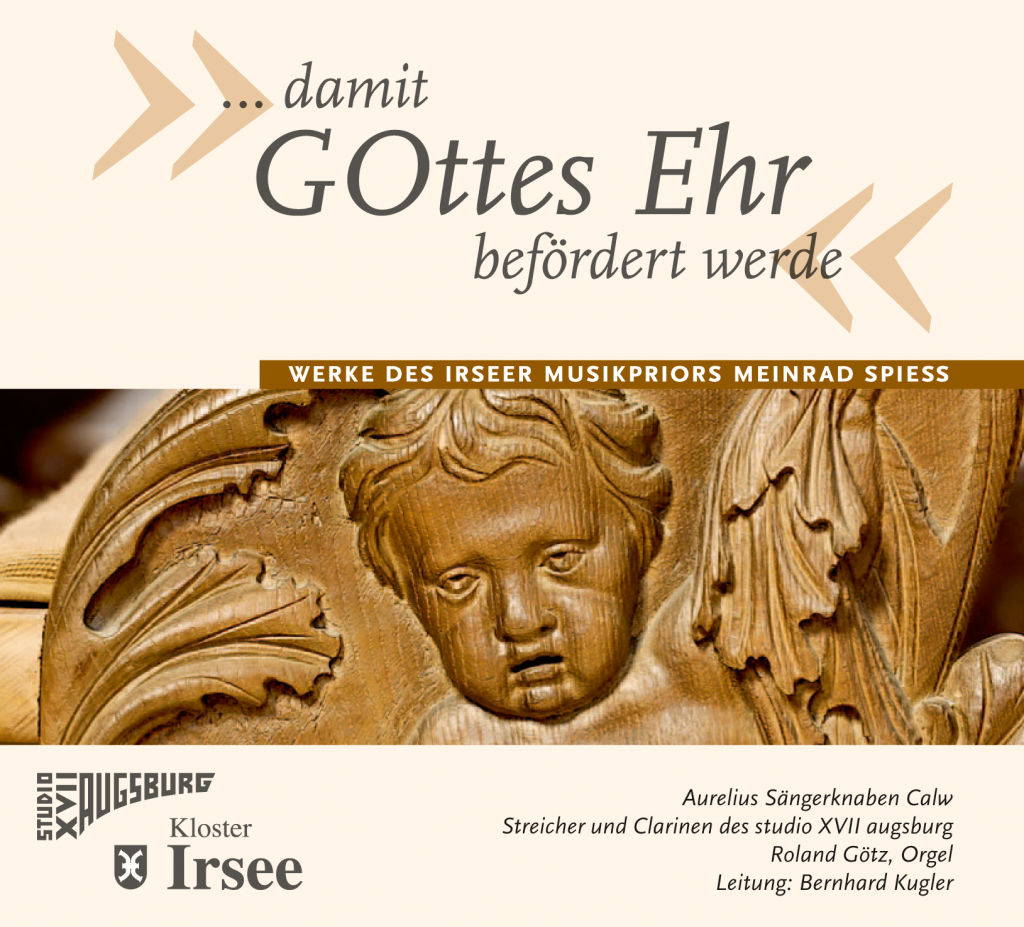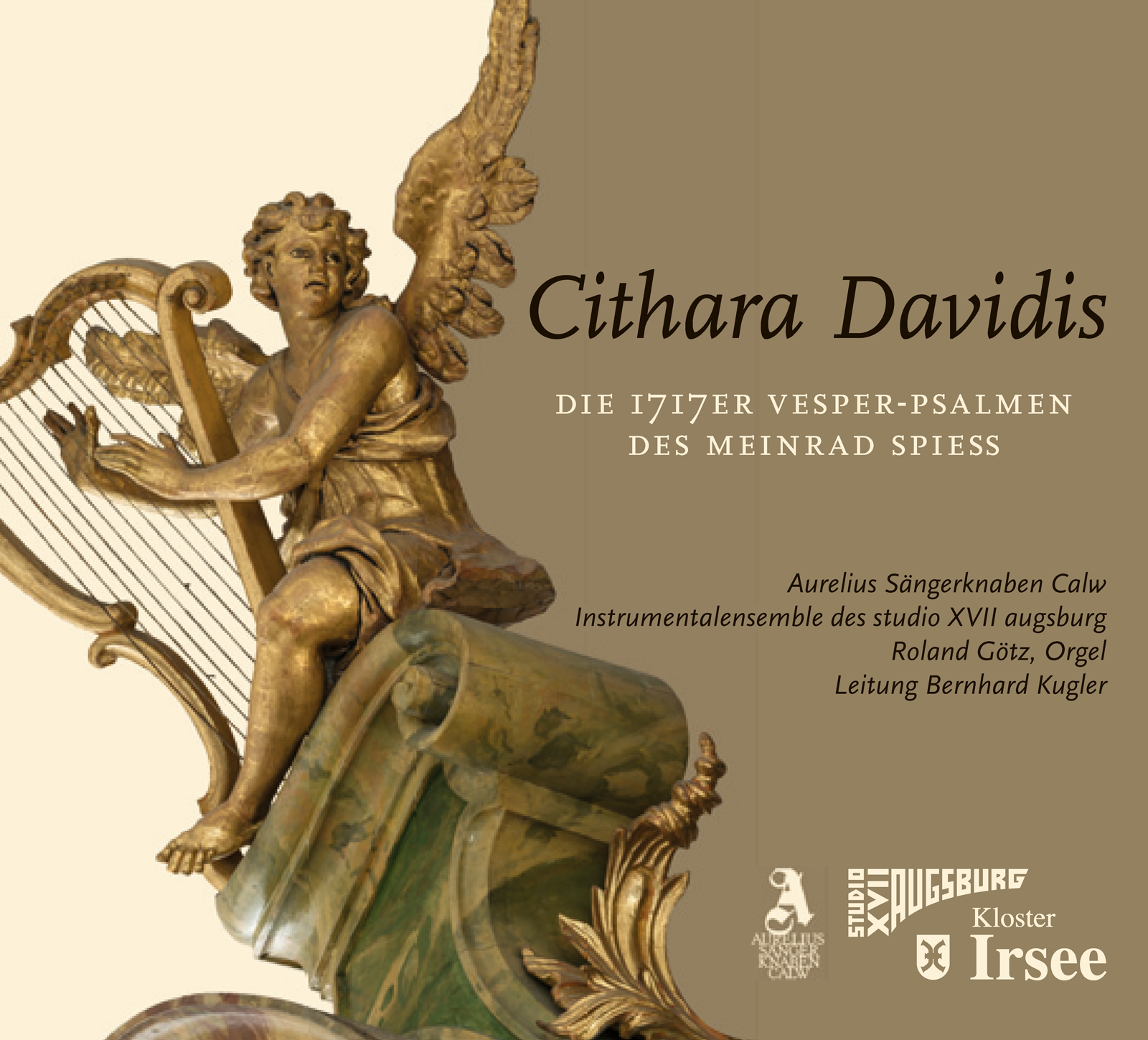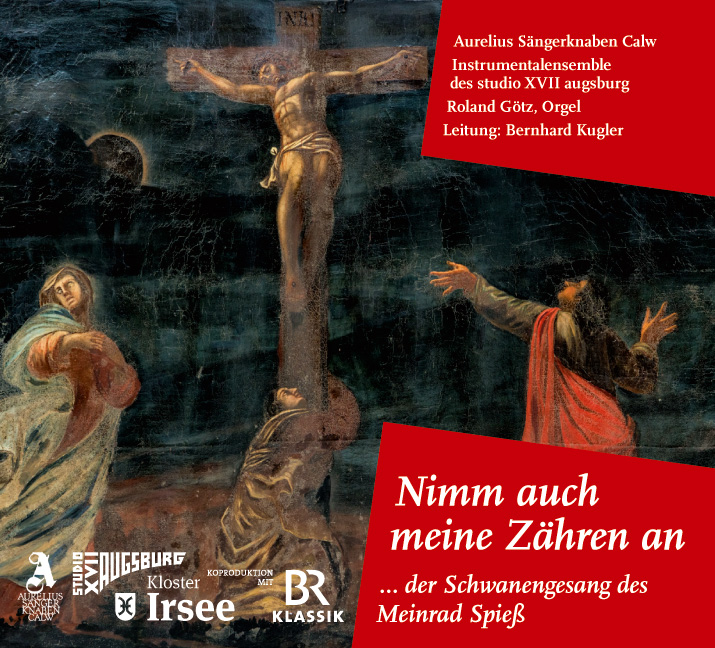The musical prior of Irsee, Meinrad Spieß, was born on August 24, 1683 in Honsolgen (Allgäu) and was given the name of Matthäus at baptism. As the youngest of nine children, he became a choirboy at the Latin School of the Irsee Monastery in 1695. After five years of schooling, he continued his education at the neighboring Ottobeuren Abbey. Following his return to the monastery of the Benedictine Abbey at Irsee on November 12, 1701, Spieß took the monastic name of Meinrad. He was ordained a priest in 1708.
Between 1709 and 1712, Spieß resided in Munich as a composition student of Court Capellmeister Giuseppe Antonio Bernabei. When he returned to Irsee in 1713, he took over the position of music director, an office that he held until 1750. From time to time, he also held other offices, the highest of which was that of prior.
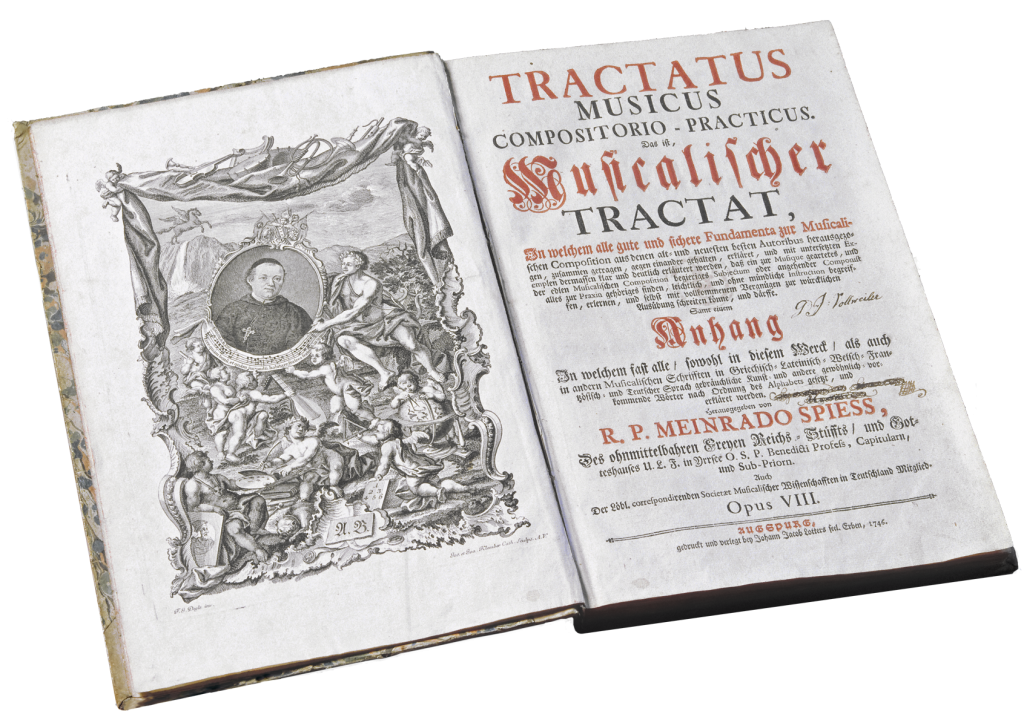
For nearly forty years, Meinrad Spieß was responsible for the musical parts of the liturgy at his abbey. In the catalogue of his own works, Spieß listed eight printed items with opus numbers, among them the tutor, Tractatus Musicus Compositorio–Practicus. A few additional works have survived in manuscript form.
Performance material and additional information about Meinrad Spieß’ oeuvre can be found at: www.musica-rediviva.de.
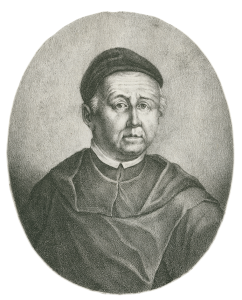 According to his own statements, Spieß strove to synthesize his teacher Bernabei’s strict counterpoint and “contemporary compositional style.” He belonged to the last generation of composers who, prior to the advent of orchestral music, created baroque instrumental works for a small number of instruments. Meinrad Spieß was the sole composer from South Germany to become a member of the Correspondierende Societät der musikalischen Wissenschaften in Deutschland [Corresponding Society of Musical Sciences in Germany], also called the Mizler’sche Societät. As a result, he exchanged letters with great musicians like Johann Sebastian Bach, Georg Friedrich Händel and Georg Philipp Telemann.
According to his own statements, Spieß strove to synthesize his teacher Bernabei’s strict counterpoint and “contemporary compositional style.” He belonged to the last generation of composers who, prior to the advent of orchestral music, created baroque instrumental works for a small number of instruments. Meinrad Spieß was the sole composer from South Germany to become a member of the Correspondierende Societät der musikalischen Wissenschaften in Deutschland [Corresponding Society of Musical Sciences in Germany], also called the Mizler’sche Societät. As a result, he exchanged letters with great musicians like Johann Sebastian Bach, Georg Friedrich Händel and Georg Philipp Telemann.
He was highly respected as an → authority on organs and bells. Meinrad Spieß died on June 12, 1761 and was buried in the Irsee Abbey Church.
For the 250th anniversary of Meinrad Spieß’ death, the Aurelius Sängerknaben Calw and studio XVII augsburg recorded the Irsee prior’s most important works on CD in 2011. Bernhard Kugler directed the Aurelius Sängerknaben Calw, which was joined by organist Roland Götz, and the strings and trumpets of studio XVII.
At the beginning of 2017, a music CD with four Vesper Psalms and the mangnificat by Meinrad Spieß, published 300 years earlier as opus II “Cithara Davidis noviter animata”, was released in a recording by Bayerischer Rundfunk.
In 2019 studio XVII augsburg and the Aurelians presented another spit CD with previously unpublished works by the Iris choir director.
You can order the CDs from:
studio XVII augsburg
Bgm.-Aurnhammer-Straße 50 B
86199 Augsburg
email hidden; JavaScript is required
www.studioXVIIaugsburg.de


